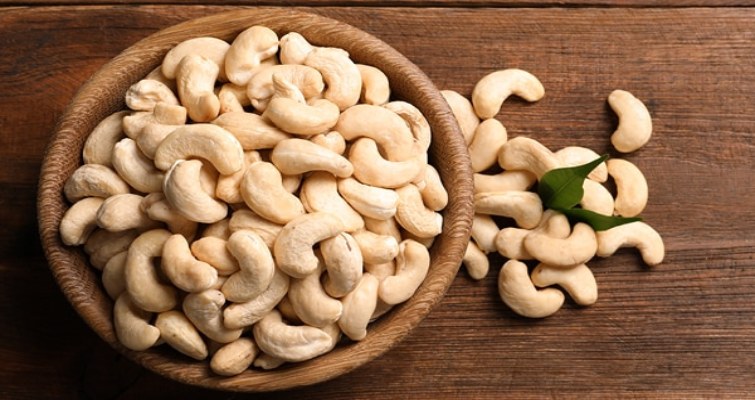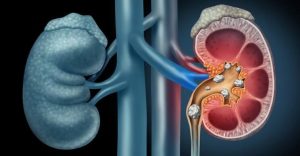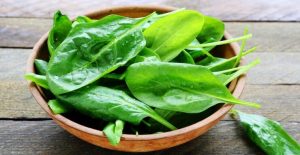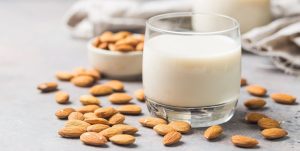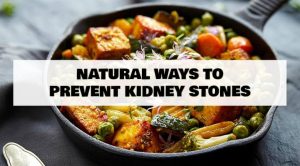Cashews may help improve your overall health by providing your body with a variety of nutrients, such as protein, healthy fats and antioxidants.
However, if you are susceptible to kidney stones, you may want to avoid eating cashews in high quantities. Because cashews contain a substantial amount of oxalate!
Ingesting high amounts of oxalate consistently can increase urinary oxalate levels, thereby raising the risk of forming calcium oxalate stones. This is especially true if your body absorbs too much dietary oxalate due to various reasons.
This article explores cashews’ potential effects on the formation of calcium oxalate kidney stones, the most common type of kidney stone.
Understanding Calcium Oxalate Stones
Knowing the basics of calcium oxalate stones will be useful in understanding how excessive cashew consumption may contribute to calcium oxalate stones in some people.
As their name signifies, calcium oxalate stones are made of calcium and oxalate.
Oxalate (oxalic acid) is a naturally occurring compound found in many plant foods. The human body also produces oxalate on its own.
If the urine contains high levels of oxalate and too little liquid, oxalate and calcium can bind together and create calcium oxalate crystals. These crystals can then clump together, forming kidney stones.
For this reason, those who are prone to calcium oxalate stones are usually advised to limit the intake of foods high in oxalate and drink plenty of water, among other preventive measures.
How Much Oxalate is in Cashews?
Cashews are one of the foods considered high in oxalate. According to the list published by St. Joseph’s Healthcare; 1 ounce (18 nuts) of cashews contains about 50 mg oxalate.
If there is too much oxalate in your urine or if you have had calcium oxalate stones in the past — briefly, if you are at high risk of calcium oxalate stones — your doctor may advise you to limit your daily oxalate intake to 50 mg or less.
As per different sources, the average oxalate consumption in a typical North-American diet is between 100 to 200 mg a day {1, 2, 3, 4}.
Cashews Might Be Riskier Than Other High Oxalate Foods
There are foods that contain more oxalate than cashews, such as spinach, rhubarb, soy protein, beets, cacao powder and almonds.
However, some factors make cashews and almonds potentially riskier for stone formers. For instance:
- Many people find cashews delicious largely because of their sweet and buttery taste. And, they can be eaten almost everywhere. Besides, like other nuts, cashews are known to be beneficial against cardiovascular diseases. These and similar reasons can cause people to consume cashews on a regular basis in excessive amounts. This may not be the case for spinach or rhubarb because, generally speaking, they are eaten occasionally and seasonally.
- Research shows that cashews and almonds contain high levels of soluble oxalate. This might mean that the consumption of cashews and almonds is riskier for stone formers because soluble oxalate is better absorbed in the intestines than insoluble oxalate according to studies {5, 6, 7}.
Studies on Cashew Consumption and Kidney Stones
Below are two case reports showing the potential impact of excessive cashew consumption on kidneys.
A 2017 case study described a 63-year-old woman who developed oxalate nephropathy, a type of kidney injury caused by calcium oxalate crystals in the kidneys. According to the authors, her excessive cashew consumption — a half can of cashew ( around 130 gm ) every day for 4 months — was the main culprit for her condition.
It was indicated that the patient’s low calcium intake may also have contributed to the development of calcium oxalate crystals because calcium wasn’t available to bind to oxalate in her gut.
The patient was advised to stop eating cashews to limit her daily oxalate intake to 50 mg among other dietary recommendations. After two months, the patient’s urinary oxalate levels normalised and her kidney functions improved.
Another case study described a 69-year-old man presenting to the emergency department with 2 days of anuria (meaning no urine) accompanied by nausea and vomiting.
Computed tomography showed the patient had a kidney stone in his left kidney and kidney cysts in both kidneys. Subsequently, a kidney biopsy revealed that the patient developed oxalate nephropathy, which occurs due to calcium oxalate crystals in the kidneys.
The interview with the patient revealed that he consumed 480 gm of cashew nuts 2 days prior to his presentation to emergency service. It was estimated that the patient consumed approximately 1260 mg of oxalate during that day. Doctors suspected that his years of excess oxalate intake damaged his kidneys.
These two case studies suggest that when eaten in excess, cashews (and other foods high in oxalate) may cause calcium oxalate crystals to form. Note that calcium oxalate crystals are the primary risk factor for calcium oxalate kidney stones, according to the International Society of Nephrology.
Beware of Cashews If you Have These Risk Factors
Certain factors may increase your oxalate absorption and thus raise your risk of developing calcium oxalate kidney stones.
Eating oxalate-rich cashews in high quantities when you have one or more of the below-given risk factors may increase your likelihood of developing kidney stones.
- Studies found that people with inflammatory bowel disease are more likely to develop kidney stones because they are susceptible to absorbing more oxalate {8, 9, 10}.
- Studies demonstrate that gastric bypass surgery (a type of weight-loss surgery) can raise the level of oxalate in the urinary tract and increase the risk of forming calcium oxalate stones {11, 12, 13, 14}.
- Experts suggest that prolonged use of certain types of antibiotics can wipe out oxalate-degrading bacteria called Olaxabacter Formigenes and consequently raises the risk of calcium oxalate stones {15, 16, 17}.
- Researchers warn that because at high doses vitamin C is metabolised into oxalate in the body, regularly taking more than 500 mg of vitamin C can increase kidney stone risk, especially in men {18, 19, 20, 21}.
Should You Avoid Cashews to Prevent Kidney Stones?
Eating cashews in moderation should be safe for those who aren’t prone to forming calcium oxalate kidney stones. However, if you are susceptible to forming calcium oxalate stones, talk with your doctor or dietitian about your cashew intake, which is relatively high in oxalate.
Bear in mind that if there is too much oxalate in your urine (which can be measured by a urine test) your doctor may put you on a diet limiting your daily oxalate intake to 50 mg or less to minimise kidney stone risk. And, this diet may not include foods higher in oxalate, such as cashews, or it may allow them in small quantities.
More About Cashews and Kidney Stones
- According to kidney experts, people with a high risk of forming calcium oxalate stones should consume a sufficient amount of calcium (which is around 1,200 milligrams daily) so that calcium and oxalate bind each other in the stomach or intestines rather than in the kidneys, where they form calcium oxalate crystals {22, 23, 24}. Based on that you may want to eat cashews with calcium-containing food such as cheese or milk.
- Almonds provide way more oxalate than cashews when eaten in the same amount. So beware of almonds and almond milk if you are susceptible to kidney stones.
- If you need to lower your oxalate intake, you can opt for nuts with relatively low oxalate such as pecans, pistachios and maybe walnuts.
- If you are prone to calcium oxalate stones, avoid drinking cashew milk in excessive amounts as it may also be high in oxalate.
